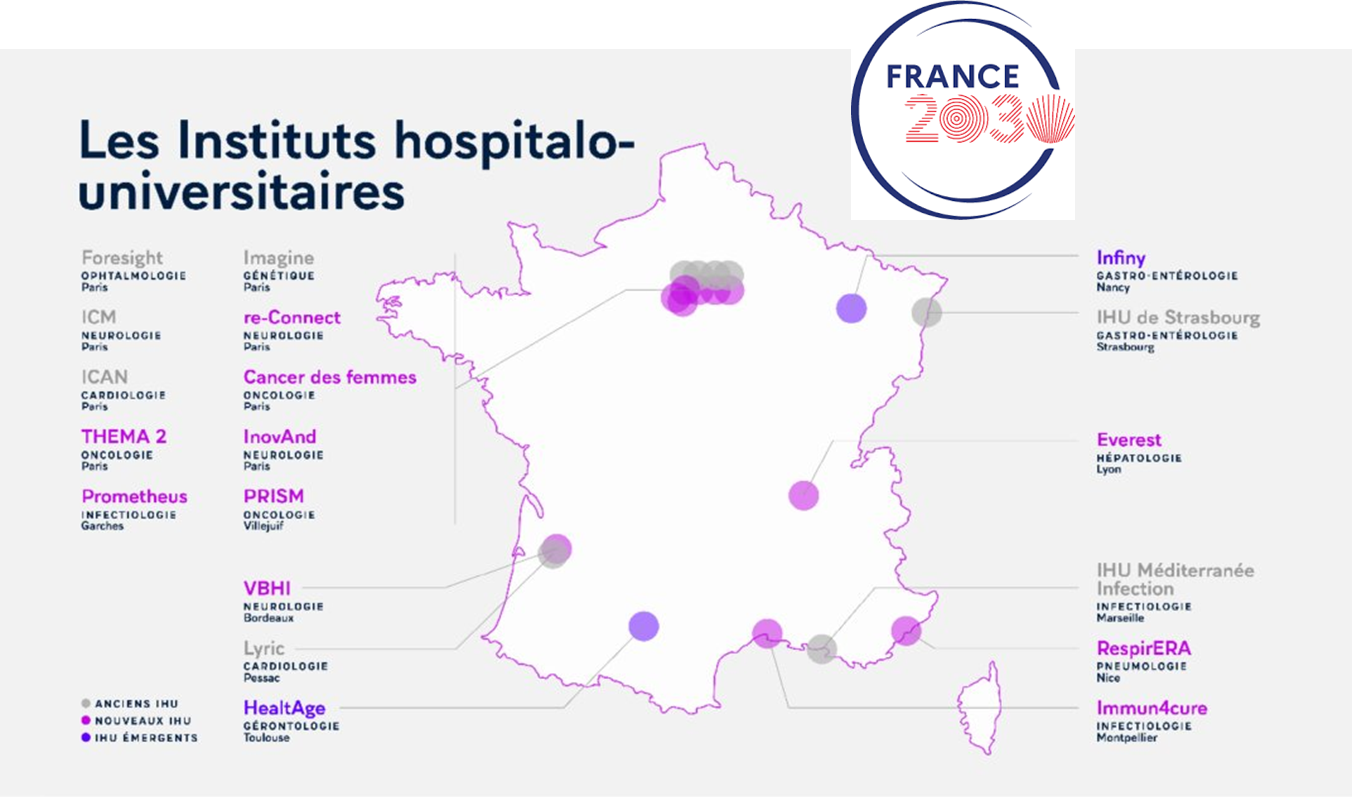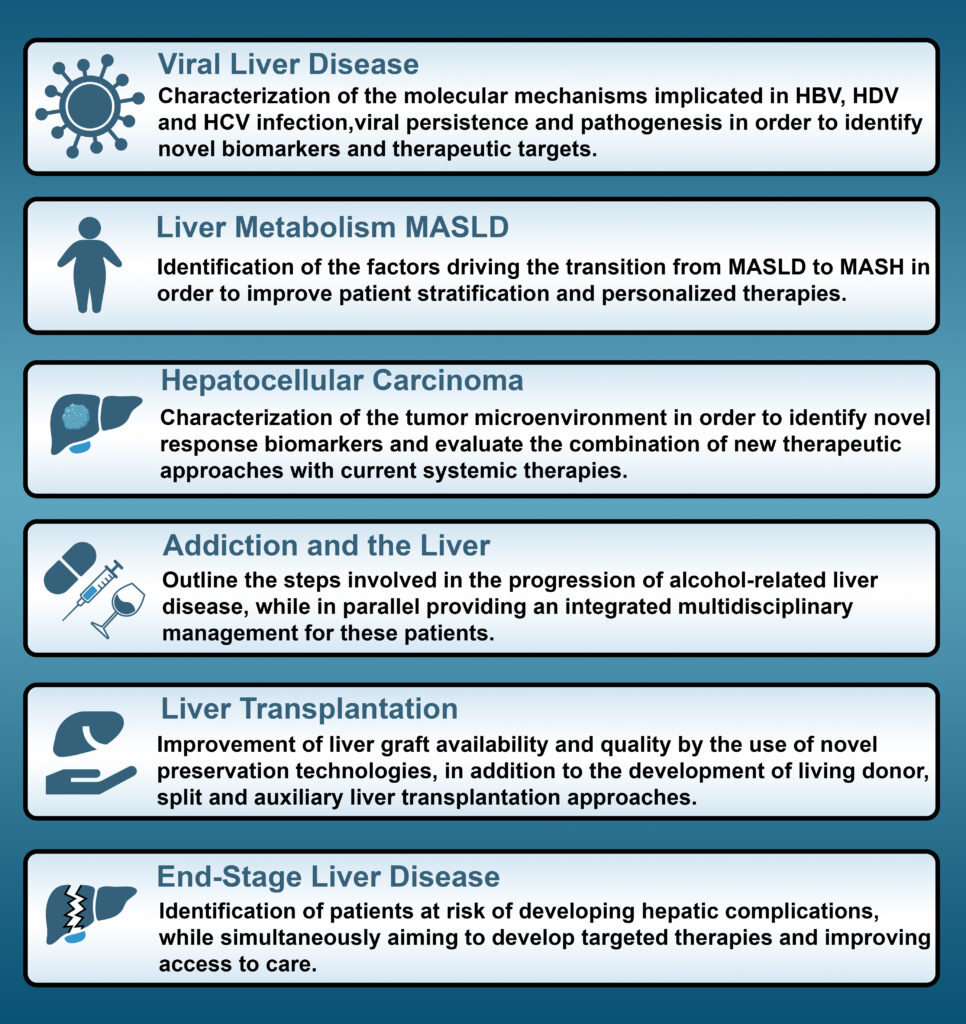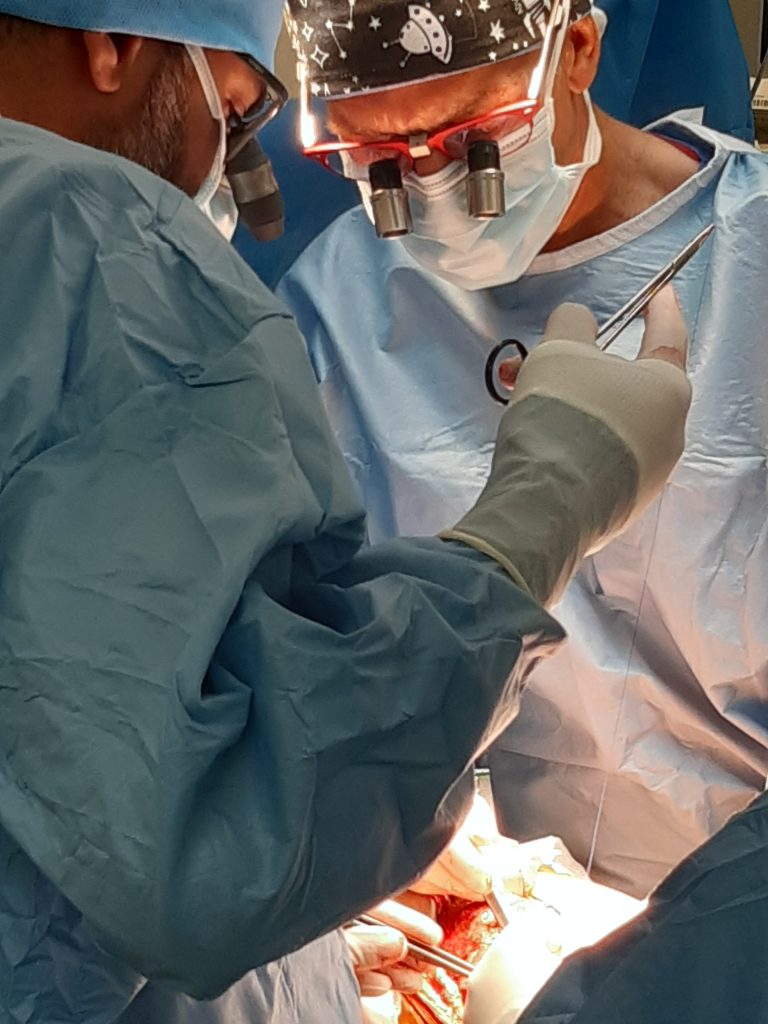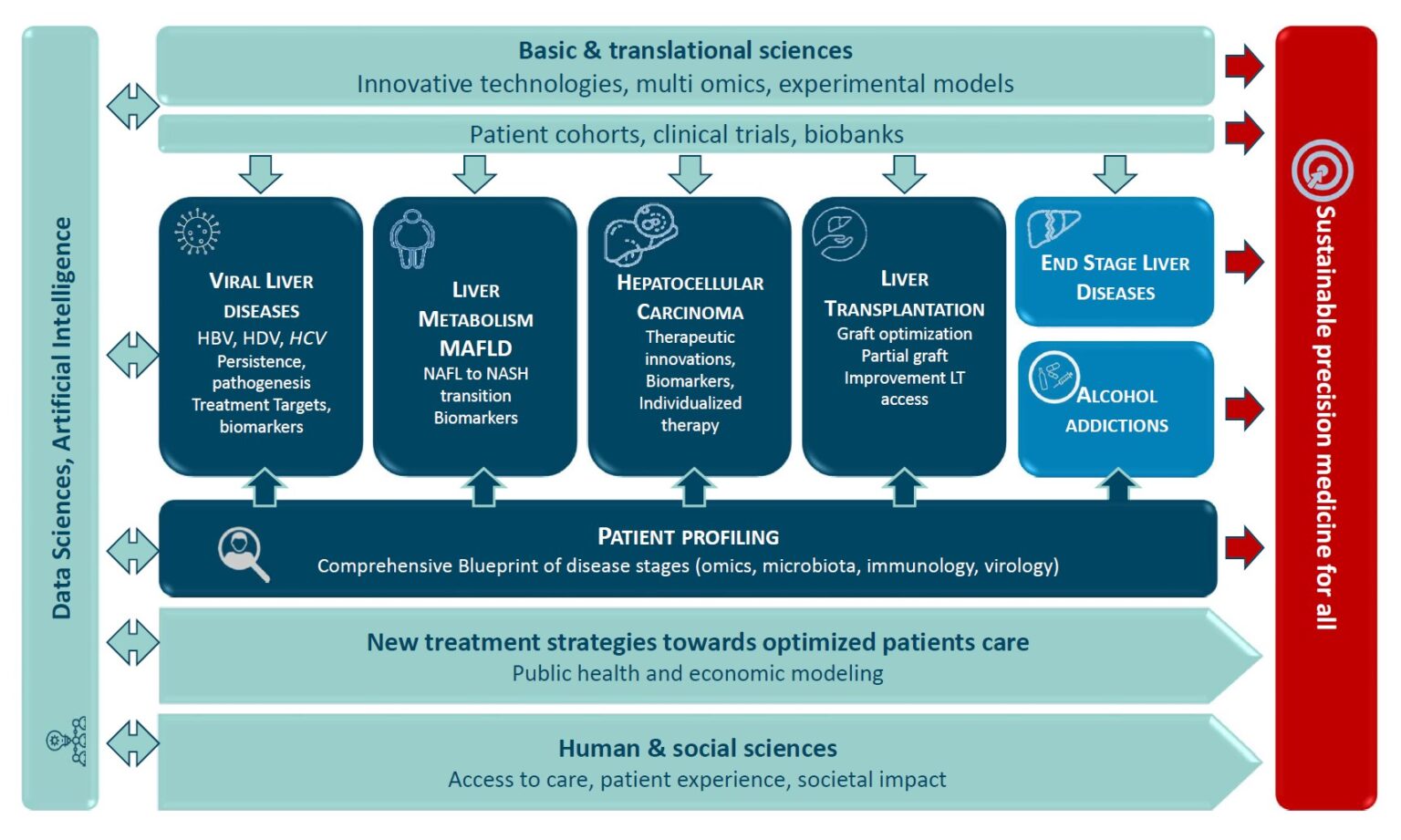Accueil » Overview
Overview
The Lyon Institute of Hepatology was established a year ago to provide a structure for the entire local hepatology sector. On Tuesday 16 May 2023, President Emmanuel Macron, officially announced the Lyon Institute of Hepatology as one of 10 University Hospital Institutes (IHU) approved by the French government, and the very first IHU in the Auvergne-Rhône-Alpes region.
With an endowment of 20M€ over ten years, this new IHU, supported by the Hospices Civils de Lyon, the Claude Bernard Lyon 1 University, the Léon Bérard Centre and Inserm, is set to become the French benchmark and a world centre of excellence for research into liver diseases.


Diseases in question:
Chronic liver diseases (CLD) are a major health threat worldwide, including in Europe. They affect more than 1.5 billion people worldwide.
- Viral infections: 58 million people are infected with the hepatitis C virus (HCV), 300 million with the hepatitis B virus (HBV).
- 10% of the population is at risk of alcohol-related liver disease due to excessive alcohol consumption.
- Due to the continued increase in obesity and metabolic syndrome, 25% of the population has hepatic steatosis or non-alcoholic fatty liver disease (NAFLD).
- Hepatocellular carcinoma (HCC) ranks 6th worldwide for cancer prevalence and 4th for cancer mortality.
Chronic liver disease is responsible for more than 2 million deaths a year from complications of liver cirrhosis: end-stage liver disease (ESLD) and HCC.
Despite improvements in the management of end-stage liver disease, liver transplantation remains a major indication for patients with end-stage liver disease and HCC. However, access to transplantation and improved graft availability remain difficult.
The Institute of Hepatology is interested in all of these liver diseases.
Vision:
The institute aims to be at the forefront of translational research in hepatology through the creation of a unique liver centre. The institute will be a place of integrated research and clinical care to support innovation in hepatology diagnosis and therapy. Researchers and physicians will work together with industrial partners to bring innovation to patients and clinical practice. We want to ensure that the best standards of care are developed, implemented and evaluated, by prioritising patient needs and training healthcare professionals and scientists. Our long-term goal is to develop a sustainable precision medicine model for all patients with chronic liver disease.

All the Institute’s disciplines and expertise will be mobilised to address all liver diseases, their challenges and their unique characteristics, with the aim of developing sustainable precision medicine for all patients.



